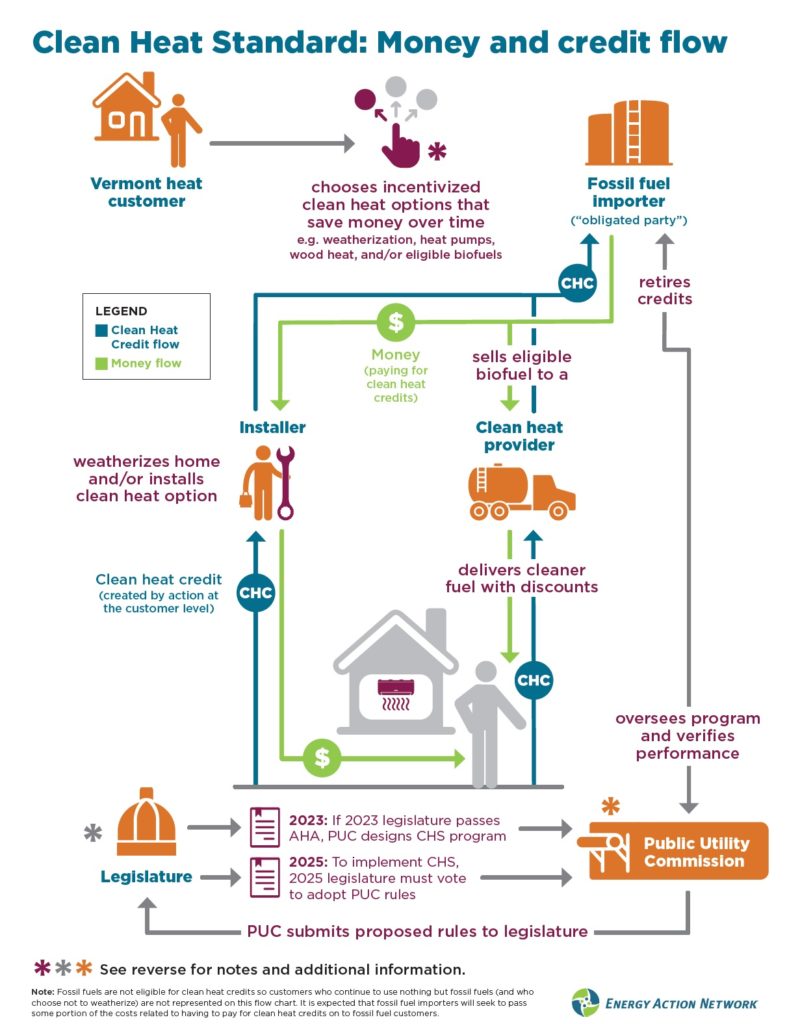Clean Heat Working Group
2023 Affordable Heat Act (S.5) Resources
- Affordable Heat Act S.5 – link to VT legislative website
- Affordable Heat Act Materials from Clean Heat Working Group
Overview: 
A Clean Heat Standard would require fossil fuel corporations and utilities that import heating fuels in Vermont to reduce their climate pollution over time, in line with Global Warming Solutions Act requirements. Fossil fuel importers will be able to meet the performance standard either by selling cleaner heating fuels or by paying for work done by others that helps Vermonters use clean heating options (such as weatherization, heat pumps, or advanced wood heat). The goal of the Clean Heat Standard is to both reduce climate pollution and reduce costs of home and building heating over time.
For years, Vermont has required our electric utilities to help their customers save energy and reduce fossil fuel use. The Clean Heat Standard would establish a similar standard for fossil fuel corporations. For Vermont households and businesses, this would create an array of cleaner heating options from which to choose. The CHS would make many clean heating options more affordable for Vermonters, helping Vermont homes and businesses move from dependence on polluting fossil fuels that are high-cost and price-volatile, like propane and fuel oil, to lower-cost, more price-stable options like heat pumps, heat pump water heaters, and efficient wood heat, depending on what is best for their individual circumstances.
To ensure climate pollution is actually reduced and not simply moved elsewhere, fuels would be assessed on a lifecycle emissions basis, preventing unsustainable biofuels from earning credits.
Progress to date: Design of a Clean Heat Standard began after the idea was selected as a winning pitch at the 2020 EAN Network Summit. A dedicated group of EAN Members and Public Partners met, often weekly, to discuss and develop key concepts. A webinar (slides and video linked below) describing the Clean Heat Standard was hosted on October 22, 2021, and a white paper was drafted. The Vermont Affordable Heat Act of 2023, and Clean Heat Standards that have been proposed in other states and jurisdictions have built on the ideas in the White Paper.